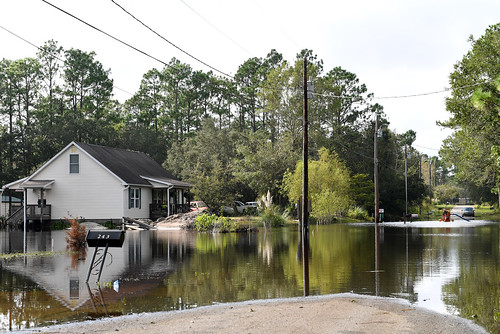The Environmental Protection Agency (EPA) has just issued rules that repeal and replace one of the Obama-era EPA’s signature efforts to reduce greenhouse gas (GHG) emissions. Effective September 6, EPA’s new “Affordable Clean Energy Rule” (ACE) will replace the “Clean Power Plan” adopted in 2015 but stayed by litigation (I wrote about the proposed CPP here). As anyone who has compared the Obama and Trump Administrations' approaches to climate change would expect, the new rule reduces the old rule’s requirements. It softens the mandates in the earlier rule, and offers states more flexibility to design their own efforts to control GHG emissions from existing fossil fuel-fired electricity generating units (EGUs) by eliminating CPP requirements that states consider operational changes “outside the fenceline” of the regulated EGUs.
Read MoreAudit, Compliance and Risk Blog
Tags: Environmental risks, Environmental, EPA, Greenhouse Gas, ghg
Reporting EHS Releases – Responsibilities Continue Except For Some Farm Emissions
Posted by Jon Elliott on Tue, Jul 16, 2019
Among its many provisions, the Emergency Planning and Community Right-To-Know Act of 1986 (EPCRA, in this case Section 304) requires facilities to report releases of specified hazardous and extremely hazardous substances, if the release exceeds an applicable threshold reportable quantity (RQ). The Environmental Protection Agency (EPA) administers these requirements, and has just approved an exemption for emissions from animal wastes at farms (this exemption tracks one amended into the Superfund law (CERCLA) in 2018). Other types of facilities and activities are still subject to these reporting requirements, so it’s a good time to review them.
Read MoreTags: Health & Safety, Environmental risks, Environmental, EHS, EPA, Greenhouse Gas, ghg, Hazcom
Since President Trump took office, the Environmental Protection Agency (EPA) has taken a number of steps to narrow benefit-cost analyses, reversing expansive approaches used during the Obama Administration and narrowing the scope of “justifiable” environmental and health regulations. The latest such step appears in a May 13 memorandum from EPA Administrator Wheeler to his Assistant Administrators.
Read MoreTags: Business & Legal, Environmental risks, Environmental, EHS, EPA
Status of Trump Administration Environmental Regulatory Rollbacks
Posted by Jon Elliott on Tue, Jul 02, 2019
Since President Trump took office, I’ve written in this space a number of times describing specific executive and regulatory initiatives to freeze or reverse environmental regulations. They’ve largely conformed with the President’s antipathy for such regulations, and his appointees’ vigor. Environmental and health advocates have challenged all these changes, continuing to yield court decisions confirming the limits of executive and administrative authority to impose changes (In January 2017 I summarized the limits on various approaches here).
Read MoreTags: Health & Safety, Environmental risks, Environmental, EPA, Oil & Gas, clean water
It’s Time To Submit Annual Toxic Release Inventory Reports
Posted by Jon Elliott on Thu, Jun 27, 2019
Section 313 of the Emergency Planning and Community Right-To-Know Act of 1986 (EPCRA, also referred to as SARA Title III) requires selected facilities to file toxic chemical release inventory reports with EPA and their state, on one of two forms (Form R or Form A). This program is often referred to as the Toxics Release Inventory (TRI) program. Filings are due every July 1, so facilities that know or suspect they’re covered should be preparing their annual submissions. The remainder of this blog summarizes TRI requirements.
Read MoreTags: Business & Legal, Health & Safety, Environmental risks, Environmental, EPA, Hazcom
International controls on shipments of plastic waste will increase effective January 1, 2021. Parties to the 1989 Basel Convention on the Control of Transboundary Movements of Hazardous Wastes and their Disposal (Basel Convention) have just adopted amendments to add “plastic waste” to the materials governed by the Convention. The European Union and 186 nations are parties to the Basel Convention; President George Bush signed it on behalf of the United States in 1989, but in the ensuing three decades the U.S. Senate has not yet ratified it. However, the U.S. is subject to requirements adopted by the Organization for Economic Cooperation and Development (OECD), which reflect Basel Convention requirements. Besides, most countries that might receive exports are Basel Convention signatories and should enforce its terms.
Read MoreTags: Business & Legal, Health & Safety, Environmental risks, Environmental, EPA, Hazcom
California Proposes Universal Wastes Rules For Photovoltaics
Posted by Jon Elliott on Tue, Jun 11, 2019
The Resource Conservation and Recovery Act (RCRA) assigns the US Environmental Protection Agency (EPA) and state hazardous waste agencies regulate “hazardous wastes,” including categories defined as “universal wastes” that are subject to reduced management requirements. EPA defines five categories, but also allows states to define additional categories (I wrote about this here). California’s Department of Toxic Substances Control (DTSC) has just proposed to add a new category of state-regulated universal waste covering “photovoltaic [PV] modules” to its regulations under the state’s Hazardous Waste Control Law (HWCL). The remainder of today’s blog summarizes these proposed universal waste PV requirements.
Read MoreTags: California Legislation, Environmental risks, Environmental, EHS, EPA, Hazcom, RCRA
The Resource Conservation and Recovery Act (RCRA) assigns the US Environmental Protection Agency (EPA) to define and then regulate “hazardous wastes.” EPA applies its considerable discretion to separate hazardous wastes into categories subject to distinct waste management requirements. One basis for these categorizations is relative risk – the more hazardous the waste the greater the controls required, and the smaller the threshold quantities necessary to trigger regulation. Beginning in 1995, EPA has defined a limited set of very common lower-risk wastes as “universal wastes,” and made them subject to special rules intended to encourage recycling (40 CFR part 273). The rest of this note summarizes universal waste requirements.
Read MoreTags: Health & Safety, Environmental risks, Environmental, EPA, Hazcom, RCRA
EPA Requiring Notice and Review Before Lapsed Uses of Asbestos Can Be Reintroduced
Posted by Jon Elliott on Tue, May 07, 2019
The Environmental Protection Agency (EPA) is continuing its renewed reviews of asbestos products, and has just issued a requirement that “discontinued” uses receive new review and approval before they can re-enter commerce in the United States. Formally, EPA has issued a Significant New Use Rule (SNUR) covering these products (I wrote about the SNUR proposal here).
Read MoreTags: Health & Safety, Environmental risks, Environmental, EPA
If You’re In A Flood Zone, Your Insurance Options May Be Changing
Posted by Jon Elliott on Tue, Apr 16, 2019
Millions of people live and work in flood-prone areas, and rely on federal insurance to facilitate their activities. The Federal Emergency Management Agency (FEMA) administers the National Flood Insurance Program (NFIP), under which FEMA defines which flood-prone areas qualify for insurance. In March, FEMA announced plans to change its definitions and underwriting; meanwhile legislation has been introduced in Congress to change NFIP. Depending how these changes turn out, thousands of locations will gain or lose eligibility, and the costs of NFIP insurance could change considerably. As climate change exacerbates the likelihood and severity of floods, the importance of these changing provisions grows – for participants and for the general tax-paying public who often end up subsidizing them.
Read MoreTags: Business & Legal, Environmental risks, Environmental, Insurance, Insurance Claims










